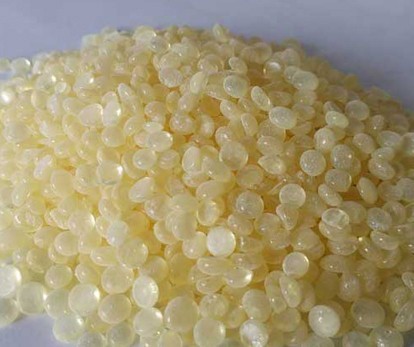
 Language
▼
Language
▼
More Language

The viscosity characteristics of c5 aliphatic hydrocarbon resin are one of its important physical properties. The following is a detailed introduction to the viscosity of c5 aliphatic hydrocarbon resin:

Viscosity is a physical quantity that measures the ability of a fluid (including resin) to resist flow. For c5 aliphatic hydrocarbon resin, its viscosity is moderate, which makes it perform well in various applications, especially in fields that require good fluidity and adhesion.
 The viscosity of c5 aliphatic hydrocarbon resin is influenced by various factors, including:
The viscosity of c5 aliphatic hydrocarbon resin is influenced by various factors, including:
1. Molecular weight: The larger the molecular weight of the resin, the higher its viscosity is usually. The average molecular weight of c5 aliphatic hydrocarbon resin is between 1000 and 2500, which gives it a moderate viscosity.
2. Temperature: Temperature has a significant impact on the viscosity of resin. Generally speaking, as the temperature increases, the viscosity of the resin decreases, and vice versa. Therefore, temperature control is an important means of regulating the viscosity of c5 aliphatic hydrocarbon resin during processing and application.
3. Solvent: c5 aliphatic hydrocarbon resin is soluble in various organic solvents, and the type and amount of solvent also affect the viscosity of the resin solution. The interaction between solvents and resins is complex, and the viscosity of resin solutions can be controlled by selecting appropriate solvents and adjusting the solvent dosage.
4. Shear rate: As the shear rate increases, the viscosity of c5 aliphatic hydrocarbon resin usually decreases. This shear thinning characteristic makes the resin easier to flow and form during the processing.
The moderate viscosity of c5 aliphatic hydrocarbon resin makes it widely used in many fields. For example:
1. Ink and Coatings: c5 aliphatic hydrocarbon resin, as a thickening resin, can improve the adhesion and flowability of ink and coatings, and enhance printing and coating effects.
2. Adhesive: In hot melt adhesives, pressure-sensitive adhesives, and other adhesives, the viscosity characteristics of c5 aliphatic hydrocarbon resin help regulate the adhesion and flowability of the adhesive, meeting different bonding requirements.
3. Rubber and plastics: C5 fatty hydrocarbon resin has good compatibility with natural rubber, synthetic rubber, etc., and can be used as a thickening agent, modifier, etc. for rubber and plastics to improve material properties and processing performance.
The viscosity of c5 aliphatic hydrocarbon resin can be determined by various methods, including rotational viscometer method, capillary viscometer method, etc. Among them, the rotational viscometer method is widely used due to its easy operation and accurate measurement. During the measurement process, it is necessary to select appropriate conditions such as rotor, speed, and temperature to ensure the accuracy and reliability of the measurement results.
C5 aliphatic hydrocarbon resin has moderate viscosity characteristics, which are influenced by various factors and have broad application significance in multiple fields. By controlling these factors and selecting appropriate measurement methods, the viscosity characteristics of c5 aliphatic hydrocarbon resin can be effectively adjusted and utilized.
 Address:Linzi District,Zibo City,Shandong Province
Address:Linzi District,Zibo City,Shandong Province E-mail:wanbang@wanbangresin.com
E-mail:wanbang@wanbangresin.com WhatsApp:+8615053337101
WhatsApp:+8615053337101
China C5 hydrogenated petroleum resin supplier : Shangdong Wanbang New Materials Co., Ltd.
C5 hydrocarbon resin manufacturer has a wide range of applications, high quality, low price, and multiple uses.Welcome to consult.